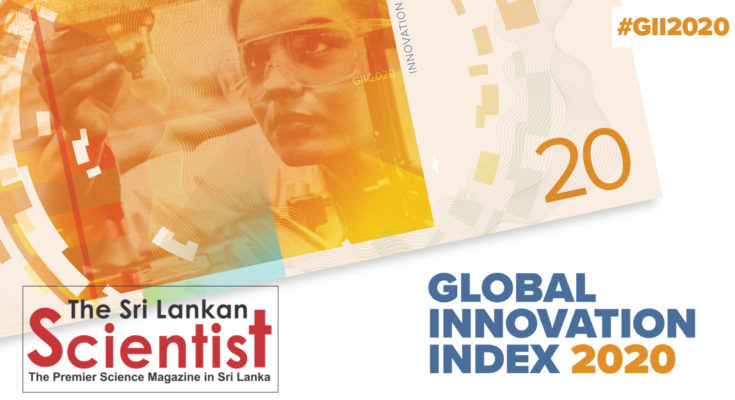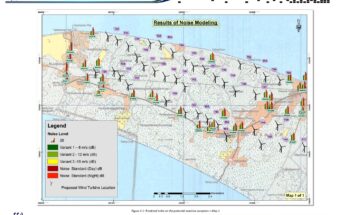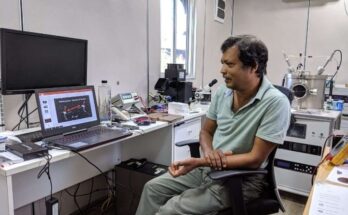World Intellectual Property Organization or the WIPO on September 2nd, released the Global Innovation Index 2020, ranking world economies according to their performances in innovation during the past year. Released as the 13th edition the Global Innovation Index 2020 is dedicated to the theme “Who Will Finance Innovation?” According to WIPO, this edition will shed light on the state of innovation financing by investigating the evolution of financing mechanisms for entrepreneurs and other innovators, and by pointing to progress and remaining challenges—including in the context of the economic slowdown induced by the coronavirus disease (COVID-19) crisis.
Where are we in GII2020?
Sri Lanka which was ranked 89th in GII 2019 has gone down to 101st place this year. In contrast our neighboring country India have moved up to 48th place from last years 52nd place. Sri Lanka is ranked 34th among the 37 countries with “Upper Middle Income” economies while ranked 7th among the 10 Central Southern Asian countries. Sri Lankas performance in two main factors considered in GII ranking are as follows.
Innovation input – Overall – 107th
Upper Middle-Income Group of Countries (37 Total) – 35th
Central and Southern Asian Countries (10 Total) – 7th
Innovation output- Overall – 83rd
Upper Middle-Income Group of Countries (37 Total) – 26th
Central and Southern Asian Countries (10 Total) – 3rd
These data clearly show how bad Sri Lanka has done in innovation during the 2019-2020 period compared to other countries in the region and the countries with similar economies. At present world innovation is considered as one of the key drivers in a growing economy. So, the performance of a country in innovation sector can be taken as a key indicator of the future of its’ economy.
A challenging Year ahead for the Sri Lankan Innovation Sector
Prof. Rangika Halwathura, the commissioner of Sri Lanka Inventors commission speaking to the Sri Lankan Scientist explained the current status of the inventions sector in Sri Lanka and the steps the commission has taken to uplift the Sri Lankan Innovation by facilitating inventors to convert their inventions to innovations.

“Actually we Sri Lankans are no short of creativity, we have one of the best human resources in this country who are born innovators, but, as a society we are not yet using these talents towards uplifting the economy of the country, For an example there were only about 260 patent applications from Sri Lanka so far this year. So, as a society we should push our innovators to patent their ideas that comes out as new inventions to protect their intellectual property rights.“
“At the same time as a country we are not doing well in converting inventions to innovations. If we are to establish a new culture of commercialization of innovations, the society should be ready to accept locally manufactured products instead of imported items. So, as Sri Lankans we all have a collective responsibility to popularize products manufactured by local industries while taking steps to discourage importation.”
“Sri Lanka is at present is more a service-based economy, and converting it to a production-based economy is no easy task. As of now we only have about 100000 local industries which is a very low number compared to the population. So, we have to establish a proper mechanism to facilitate the process of invention commercialization. As the inventor’s commission, we are doing ouwihr best to help innovators to commercialize their new ideas, but we would be able to do more if we have a much more powerful organizational mechanism facilitate inventors to commercialize their ideas.”
Prof. Rangika also mentioned about the new initiatives of Sri Lanka Inventors commission to popularize inventions and innovations within the island.
“Currently we are working on number of new projects to establish and enhance the innovation within the Sri Lankan society. The “Tea Talk” competition targeting the tea cultivation, Invention drive on Wild Life Conflict of Sri Lanka and special program to link COVID 19 related inventions with businesses are few specific programs initiated by SLIC to encourage inventions and innovations in Sri Lanka”

“As we have already started one of our main goals is to take innovation to the village level where small scale inventions will be facilitated to turn them to innovations and commercial level products, we have so far identified 183 new products and the commission is now working on them to convert them in to commercially viable innovative businesses”
A shifting innovation landscape
The geography of innovation continues to shift, the GII 2020 shows. Over the years, India, China, the Philippines, and Viet Nam are the economies with the most significant progress in their GII innovation ranking over time. All four are now in the top 50.
The top-performing economies in the GII are still almost exclusively from the high-income group, with China (14th) remaining the only middle-income economy in the GII top 30. Malaysia (33rd) follows.
India (48th) and the Philippines (50th) make it to the top 50 for the first time. The Philippines achieves its best rank ever—in 2014, it ranked 100th. Heading the lower middle-income group, Viet Nam ranks 42nd for the second consecutive year— from 71st in 2014. Indonesia (85th) joins the top 10 of this group. Tanzania tops the low-income group (88th).
“As shown by China, India and Viet Nam, the persistent pursuit of innovation pays off over time,” says Former Dean and Professor of Management at Cornell University Soumitra Dutta. “The GII has been used by governments of those countries and others around the world to improve their innovation performance.”
Are we too late?
Investing in innovation is never too late. There are always opportunities ahead of us to make our selves at least within the first 50 countries in this index if we can manage the immense talents we have in our country. So, it’s all about managing this resource pool in a correct way for a better impact.




